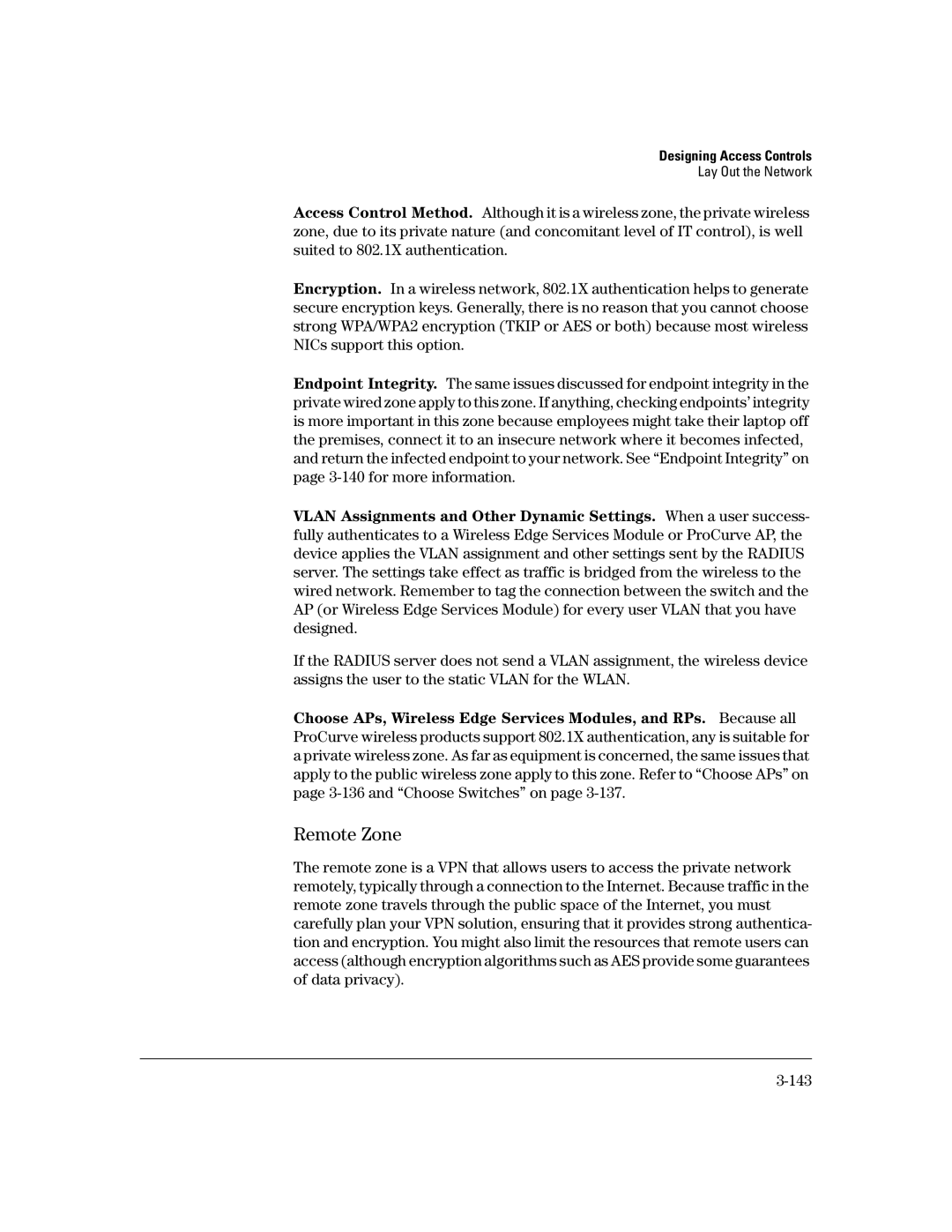Designing Access Controls
Lay Out the Network
Access Control Method. Although it is a wireless zone, the private wireless zone, due to its private nature (and concomitant level of IT control), is well suited to 802.1X authentication.
Encryption. In a wireless network, 802.1X authentication helps to generate secure encryption keys. Generally, there is no reason that you cannot choose strong WPA/WPA2 encryption (TKIP or AES or both) because most wireless NICs support this option.
Endpoint Integrity. The same issues discussed for endpoint integrity in the private wired zone apply to this zone. If anything, checking endpoints’ integrity is more important in this zone because employees might take their laptop off the premises, connect it to an insecure network where it becomes infected, and return the infected endpoint to your network. See “Endpoint Integrity” on page
VLAN Assignments and Other Dynamic Settings. When a user success- fully authenticates to a Wireless Edge Services Module or ProCurve AP, the device applies the VLAN assignment and other settings sent by the RADIUS server. The settings take effect as traffic is bridged from the wireless to the wired network. Remember to tag the connection between the switch and the AP (or Wireless Edge Services Module) for every user VLAN that you have designed.
If the RADIUS server does not send a VLAN assignment, the wireless device assigns the user to the static VLAN for the WLAN.
Choose APs, Wireless Edge Services Modules, and RPs. Because all ProCurve wireless products support 802.1X authentication, any is suitable for a private wireless zone. As far as equipment is concerned, the same issues that apply to the public wireless zone apply to this zone. Refer to “Choose APs” on page
Remote Zone
The remote zone is a VPN that allows users to access the private network remotely, typically through a connection to the Internet. Because traffic in the remote zone travels through the public space of the Internet, you must carefully plan your VPN solution, ensuring that it provides strong authentica- tion and encryption. You might also limit the resources that remote users can access (although encryption algorithms such as AES provide some guarantees of data privacy).
